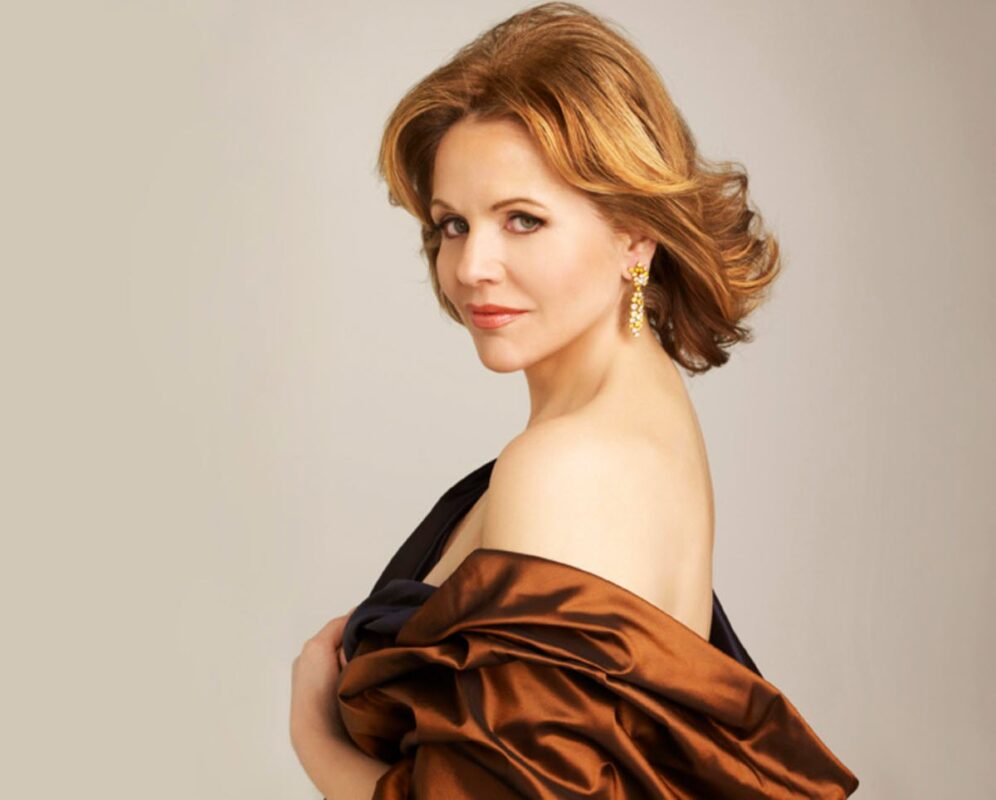Pop/Hip Hop/R&B
15 Best Opera Singers of All Time
Opera is one of the most powerful and timeless art forms, where human voices reach extraordinary heights and stir the deepest emotions. Throughout history, certain opera singers have risen above the rest, captivating audiences with their unmatched vocal talent, emotional depth, and stage presence. These legendary performers have not only shaped the world of opera but have also left an indelible mark on music as a whole. From spine-tingling tenors to soul-stirring sopranos, these artists embody the essence of passion, drama, and technical brilliance.
In this article, we honor the top 15 best opera singers of all time, whose voices have enchanted the world and whose legacies continue to inspire new generations of performers. Whether you’re an opera enthusiast or a newcomer eager to explore this majestic world, these iconic singers represent the very pinnacle of vocal artistry. Get ready to dive into a realm where sound transcends the ordinary and each note tells a story of love, tragedy, and triumph. These are the voices that have stood the test of time and continue to resonate in the hearts of millions. Let the curtain rise on our list of the greatest opera singers ever to grace the stage!
1. Maria Callas
Maria Callas, often referred to as “La Divina,” was more than just a soprano — she was an icon who revolutionized opera itself. Known for her extraordinary vocal range and versatility, Callas could breathe life into any character, making her performances unforgettable. Her portrayals of Violetta in La Traviata and Norma in Bellini’s Norma remain definitive interpretations to this day. Callas had a voice that could convey a wide spectrum of emotions, from vulnerability to fiery passion, all while maintaining impeccable technique. Despite a career marred by vocal challenges, her ability to blend dramatic intensity with vocal brilliance makes her one of the greatest opera singers of all time.
2. Luciano Pavarotti
Luciano Pavarotti, the “King of the High Cs,” was a tenor whose powerful, warm voice transcended the opera world and made him a household name. His effortless delivery of challenging arias, especially in works like Puccini’s Turandot and Verdi’s La bohème, captivated audiences worldwide. Pavarotti had an innate ability to make even the most complex pieces sound effortless, all while imbuing his performances with emotional depth. His artistry and charisma helped bring opera to the masses, making him one of the most beloved and recognizable opera singers of all time.
3. Enrico Caruso
Enrico Caruso, one of the earliest opera stars, was a tenor whose voice helped define the art of opera recording in the early 20th century. He was revered for his robust yet lyrical voice, capable of both immense power and delicate nuance. Caruso’s interpretations of roles like Canio in Pagliacci and Radamès in Aida set a standard for generations of tenors to follow. His recordings continue to inspire and are considered timeless classics, making Caruso one of the most influential figures in opera history.
4. Joan Sutherland
Dame Joan Sutherland, affectionately known as “La Stupenda,” was an Australian soprano whose crystal-clear voice and impeccable technique made her one of the most revered figures in opera. Her mastery of bel canto roles, particularly in Donizetti’s Lucia di Lammermoor and Bellini’s Norma, set a benchmark for technical precision and vocal beauty. Sutherland’s ability to produce seemingly effortless high notes, combined with her elegant stage presence, made her performances spellbinding. Her legacy is one of vocal perfection and technical mastery.
5. Plácido Domingo
Plácido Domingo is a tenor and conductor whose versatility and longevity have made him a living legend. With a career spanning over five decades, Domingo has performed more than 150 different roles, a feat unmatched by any other singer. Known for his rich, dramatic voice, Domingo has excelled in a wide range of repertory, from Verdi to Wagner. His portrayal of characters like Otello and Siegmund in Die Walküre are legendary, showcasing his ability to convey deep emotional complexity. His passion for opera continues to inspire audiences and young performers alike.
6. Renata Tebaldi
Renata Tebaldi was an Italian soprano whose velvety voice earned her the nickname “The Voice of an Angel.” Tebaldi’s performances in roles such as Tosca and Desdemona in Otello were marked by emotional intensity and vocal purity. Often considered a rival to Maria Callas, Tebaldi focused on a more lyrical, less dramatic repertoire, but her artistry was no less powerful. Her voice had a unique warmth and expressiveness that made her one of the most beloved sopranos of the 20th century.
7. Jussi Björling
Swedish tenor Jussi Björling possessed a voice of unmatched beauty and control. His smooth, effortless phrasing and crystal-clear tone made him a favorite in both the opera house and the recording studio. Björling’s performances in roles such as Rodolfo in La bohème and Don Carlo in Don Carlo are considered some of the finest ever recorded. Despite personal struggles, his ability to convey emotional depth through his voice remains unparalleled, securing his place as one of the greatest tenors in history.
8. Leontyne Price
Leontyne Price, a trailblazing American soprano, broke barriers with her extraordinary talent and became the first African-American to achieve international stardom in opera. Her voice, rich and full of warmth, was perfect for the dramatic roles she often performed, particularly in Verdi’s Aida and Puccini’s Tosca. Price’s artistry was not just in her vocal talent but in her ability to bring emotional depth and dignity to every role she portrayed. Her influence on the world of opera, as well as her role in breaking racial barriers, is immeasurable.
9. Fritz Wunderlich
German tenor Fritz Wunderlich possessed one of the most naturally beautiful voices in all of opera. His bright, lyrical tone and impeccable technique made him a favorite in the Mozart repertory, particularly as Tamino in The Magic Flute and Belmonte in Die Entführung aus dem Serail. Wunderlich’s career was tragically cut short by an untimely death, but his recordings continue to be celebrated for their vocal purity and emotional sincerity, cementing his status as one of the greatest tenors of all time.
10. Montserrat Caballé
Montserrat Caballé, the Spanish soprano known for her breathtaking pianissimos and incredible vocal control, was one of the most versatile singers of her generation. Her ability to transition from powerful dramatic roles like Turandot to more delicate bel canto roles earned her worldwide acclaim. Caballé’s mastery of dynamics and her ability to float the softest notes with ease made her performances unforgettable. Her partnership with Freddie Mercury on Barcelona showcased her versatility and helped introduce opera to a new generation.
11. Nicolai Ghiaurov
Nicolai Ghiaurov, the Bulgarian-born bass, was known for his powerful, resonant voice that could fill any opera house. His commanding stage presence and deep, rich tone made him ideal for roles like Boris Godunov and Mephistopheles in Faust. Ghiaurov’s ability to convey authority and menace, while maintaining vocal clarity, made him one of the most celebrated basses in opera history. His artistry continues to inspire new generations of bass singers.
12. Kirsten Flagstad
Norwegian soprano Kirsten Flagstad was hailed as one of the greatest Wagnerian sopranos of all time. Her voice, powerful yet warm, was ideal for the demanding roles of Brünnhilde in The Ring Cycle and Isolde in Tristan und Isolde. Flagstad’s ability to sustain long phrases with perfect intonation and her regal stage presence made her a dominating force in the world of opera. Her contributions to the Wagnerian repertory remain unparalleled.
13. Jessye Norman
Jessye Norman was an American dramatic soprano whose voice was both majestic and full of emotion. Known for her interpretations of Wagner and Strauss, Norman’s performances were marked by their power and intensity. Her unique timbre and ability to convey deep emotion through her voice allowed her to transcend genres, making her a favorite in both opera and concert settings. Norman’s artistry and grace on stage made her one of the most acclaimed sopranos of her generation.
14. Tito Gobbi
Italian baritone Tito Gobbi was known for his remarkable acting as much as for his rich, versatile voice. His portrayals of characters like Scarpia in Tosca and Rigoletto in Verdi’s Rigoletto were both vocally and dramatically compelling. Gobbi had the rare ability to fully embody his characters, bringing a psychological depth to his roles that few could match. His recordings and performances continue to be admired for their intensity and dramatic insight.
15. Birgit Nilsson
Swedish soprano Birgit Nilsson was a force of nature, particularly known for her powerful voice in the Wagnerian and Strauss repertory. Her performances as Brünnhilde in The Ring Cycle and Elektra in Elektra were legendary, showcasing her immense vocal stamina and dramatic intensity. Nilsson’s ability to effortlessly ride over large orchestras with her steely, thrilling voice made her a favorite in opera houses around the world. Her legacy as one of the greatest dramatic sopranos remains unchallenged.
Source link


